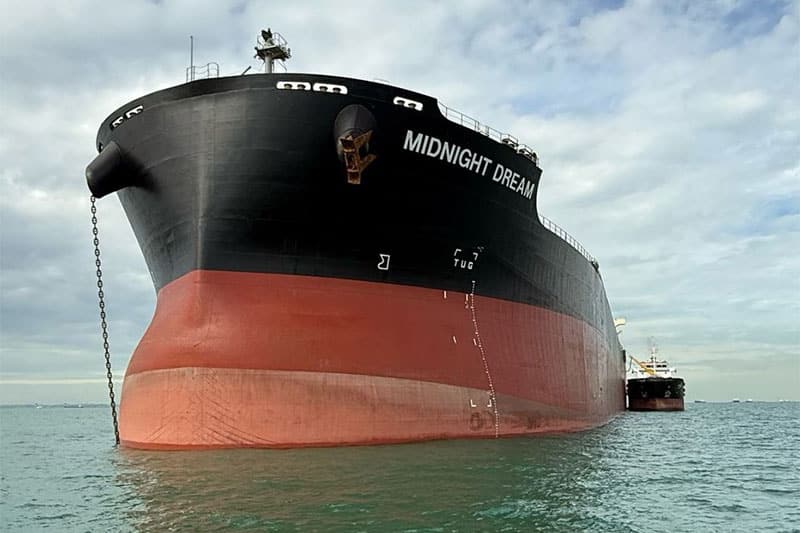MOL conducts biofuel bunkering on Capesize bulker for BHP
MOL Achieves Major CO2 Reduction with Biofuel Bunkering

Japanese shipping company Mitsui O.S.K. Lines (MOL) has successfully completed biofuel bunkering on its Capesize bulk carrier, the Midnight Dream, resulting in an anticipated reduction of approximately 750 tons of CO2 emissions. This significant milestone, achieved in collaboration with Australian mining giant BHP, marks MOL’s inaugural use of biofuels in its operations. The bunkering took place in Singapore in March 2025, utilizing a biodiesel-blended marine fuel.
Details of the Biofuel Bunkering
The Midnight Dream, a bulk carrier built in 2012, was supplied with around 1,000 tons of a biofuel blend consisting of approximately 24% biodiesel (B24) mixed with very low sulfur fuel oil (VLSFO). This innovative approach is part of MOL’s commitment to reducing greenhouse gas emissions in maritime transport. The company emphasized that biofuel serves as an effective alternative to traditional fossil fuels, offering lower carbon emissions without necessitating modifications to existing marine diesel engines or bunkering facilities.
MOL’s initiative aligns with its environmental strategy outlined in the BLUE ACTION 2035 management plan, which aims to promote the adoption of clean alternative fuels. The company stated, “MOL will continually take a proactive stance in advancing the adoption of clean alternative fuels with the aim of reducing greenhouse gas emissions in ocean transport.” This commitment reflects a growing trend in the shipping industry towards more sustainable practices.
BHP says it aims to receive first ammonia-fuelled bulk carrier in 2026
BHP’s Ongoing Commitment to Biofuels
BHP has been at the forefront of utilizing biofuel blends for specific voyages since 2021, when it conducted its first trial. In 2024, the mining company partnered with Danish shipping firm Norden to implement 100% biofuel (B100) on a voyage from Hay Point, Australia, to Rotterdam, Netherlands. This initiative was projected to cut down CO2 emissions by a total of 2,500 tons compared to conventional fossil fuels.
Additionally, BHP has collaborated with Singapore-based dry bulk shipowner Berge Bulk on a pilot iron ore voyage from Australia to China, powered entirely by B100 biodiesel. The Berge Lyngor, a Newcastlemax bulk carrier built in 2019, was bunkered with B100 biodiesel in December 2024, marking a significant first for this fuel type on the iron trade route between Australia and China. These efforts underscore BHP’s commitment to sustainability and reducing the environmental impact of its operations.
